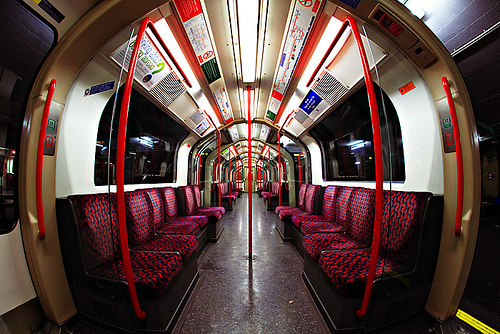
Panic Attack
noun
– A sudden overwhelming feeling of acute and disabling anxiety
I was going to write a post about personality types and how they affect our choices and ways in which our lives differ… However whilst thinking about the very post, I’m overcome with an overwhelming sense of drowning.
Breathing is becoming harder and my legs are turning to jelly. I’m on the tube hyperventilating and the world is closing in on me.
Cold fear overwhelms me and all I can think about is the blind panic of having to escape. My eyes are darting around, a mix of not wanting to make a scene and trying not to cry. I’m on the tube, in the midst of a full blown panic attack.
Now this may sound incredibly dramatic or ridiculous, but this, for many, is how anxiety affects us.
I’m not generally an anxious person. I would describe myself as bubbly, sociable and happy – I don’t think many people would associate anxiety and panick attacks with me. But for three years I’ve been attempting to learn to cope with them.
For a long while I was scared to write a post about them, but I thought it’s about time I face my fear and talk a little about this often misinterpreted, often dismissed subject.
A panic attack isn’t being nervous before a big meeting as such, it’s not necessarily worrying about something- most of the time they genuinely can come out of nowhere, when you are not worrying or anxious at all. They are a subconscious response by your body which you have no control over. The flight or fight adrenaline kicks in, and once it starts, it can be really hard to stop.
So, what is a panic attack?
Panic attacks produce very real physical symptoms from a rapid increase in heartbeat to acute claustrophia. These physical symptoms are very real and pretty horrid, and combined with thoughts of terror can make a panic attack a very scary experience. For this reason, sufferers start to dread the next attack, and quickly enter into a cycle of living ‘in fear of fear’
Symptoms of a panic attack can include:
– A pounding heartbeat
– Feeling faint
– Sweating
– Feeling sick
– Claustrophobia
– Chest pains
– Feeling unable to breathe
– Shaky limbs, or feeling like your legs are turning to jelly
– Feeling like you’re not connected to your body
The thoughts which accompany these physical symptoms may include the fear of fainting, that you are going to die, or that you are having a heart attack.
They can last between 5 and 20 minutes, with symptoms peaking around 10 minutes. You may experience a series of separate panic attacks one after another, followed by a period of high anxiety – or in ‘fear’ of having another panic attack.
What causes them?
Some people have certain situations or places which trigger them. For me, it’s knowing I’m ‘trapped’ somewhere, generally on the tube, or if I feel like i’m going to faint. You start to obsess over not being able to get out.
As with many mental health conditions, the exact cause of panic disorder isn’t fully understood. It’s thought that panic disorder is probably caused by a combination of physical and psychological factors.
How can you overcome them?
This can be really hard. Overcoming panic attacks can be a really long process, particularly if you feel like you live in fear of having them.
In the short-term, I’ve had counsellors, but generally I just mentally checklist: ‘I’ve eaten, I’ve drunk enough, I’m not going to die’, I breathe from my diaphragm and then (if able to) I ring someone close to me to talk me through it.
When you panic, it’s easy to concentrate so much on your breathing that you just hyperventilate more. This in turn increases your symptoms and you feel more faint and scared. Talking naturally regulates your breathing, whilst distracting your mind from what’s going on.
In the long-term, there are various methods – from hypnotherapy, to CBT (Cognitive Behavioural Therapy) which can help.
Some good ways of self-help can include:
– Physical exercise
– Listening to music
– Talking to someone you trust
– Keeping a diary
– Taking up a new hobby
– Breathing exercises
Living with them
A common – and natural – response to anxiety is to avoid what triggers your fear, so taking any action might make you feel more anxious at first. It can be difficult, but facing up to how anxiety makes you feel can be the first step in breaking the cycle of fear and insecurity.
The main thing to remember is that you are not alone. Many of us suffer from panic attacks – people you probably don’t even realise! Be patient too. It’s so easy to get frustrated and punish yourself for being scared, but you mustn’t be hard on yourself. If you feel uncomfortable with a situation, don’t force yourself to do it. You will overcome them and learn how to manage them. If you end up crying on the tube, or on the platform (I’ve have done many times…), don’t feel embarrassed – it happens to the best of us.
As much as panic attacks are truly terrifying – remember that they will not kill you. Try not to let them knock your confidence or hinder you from doing the things you love: and believe me, it’s so easy to let them take over your life. You are so strong, so amazing and don’t deserve to go through this.
But you WILL be fine. You are not alone.
If you’ve been affected by this post, or would like more information, head over to www.mind.org.uk



